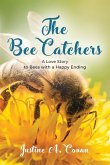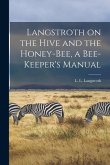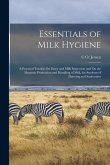The importance of bees cannot be overstated, especially in the context of sustainable agriculture and ecological balance. Bees are vital pollinators, responsible for the pollination of a significant percentage of the world's food crops. Their role in the ecosystem extends beyond mere food production; they contribute to the growth of plants that provide habitat and food for various wildlife species. This interdependence highlights the critical need for beekeeping practices that support bee health and populations, particularly in urban environments where biodiversity is often compromised. For new beekeepers, understanding the significance of bees lays the foundation for responsible and effective hive management. Urban beekeeping presents unique challenges and opportunities. In cities, where gardens and green spaces may be limited, bees can thrive in community gardens and balconies, contributing to local food production and enhancing urban biodiversity. By engaging in this hobby, individuals not only become stewards of these essential pollinators but also foster a greater awareness of environmental issues within their communities. The equipment used in beekeeping is pivotal to maintaining the health of bee colonies. From hives to protective gear, each item serves a critical purpose in ensuring the safety of both the bees and the beekeeper. For beginners, investing in quality equipment can significantly impact the success of their beekeeping endeavors. Essential tools, such as smokers, hive tools, and bee suits, help manage hives effectively while minimizing stress on the bees. As beekeeping practices evolve, new equipment options that promote sustainability and efficiency continue to emerge, making it essential for beekeepers to stay informed. Seasonal changes affect bee behavior and hive maintenance, and understanding these patterns is crucial for any beekeeper. Bees exhibit different needs and challenges throughout the year, from preparing for winter to ensuring adequate forage during the blooming season. Seasonal beekeeping tips can significantly improve a beekeeper's ability to support their colonies effectively. For instance, knowledge about feeding practices in late fall or the importance of swarm prevention in spring can make a significant difference in maintaining healthy bee populations. Beekeeping in cold climates poses additional challenges, but with the right methods, it can also be rewarding. Bees in colder regions require special considerations for winter survival, such as ensuring proper insulation and adequate food stores. Sustainable beekeeping methods, including organic practices and minimal intervention strategies, can also be integrated into these approaches. Ultimately, the commitment to preserving and nurturing bee populations through informed beekeeping practices not only benefits individual beekeepers but also contributes to the broader health of our ecosystems.
Bitte wählen Sie Ihr Anliegen aus.
Rechnungen
Retourenschein anfordern
Bestellstatus
Storno






![Specieications [sic] and Instructions for Constructing and Working Hough's Soper Improved Bee-hive [microform]: Also, the Practical Working of Fifty-t Specieications [sic] and Instructions for Constructing and Working Hough's Soper Improved Bee-hive [microform]: Also, the Practical Working of Fifty-t](https://bilder.buecher.de/produkte/65/65549/65549246m.jpg)